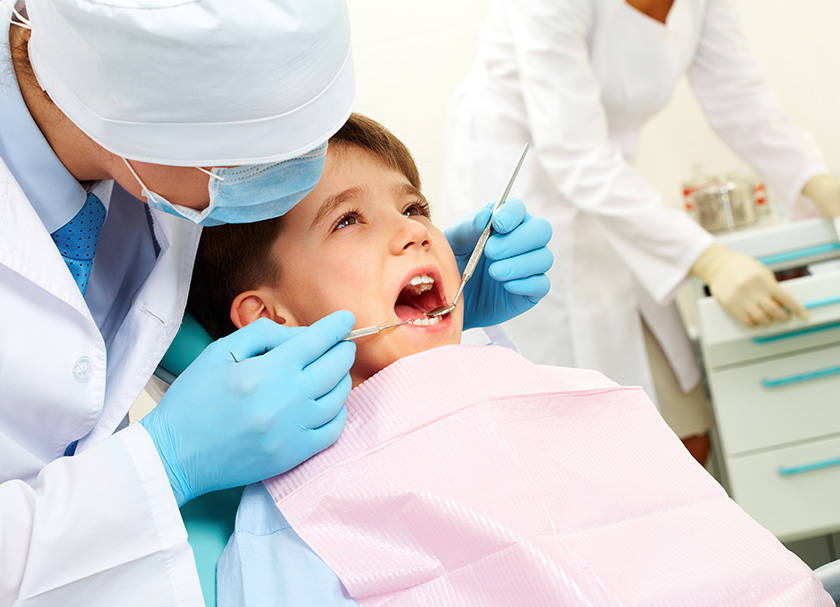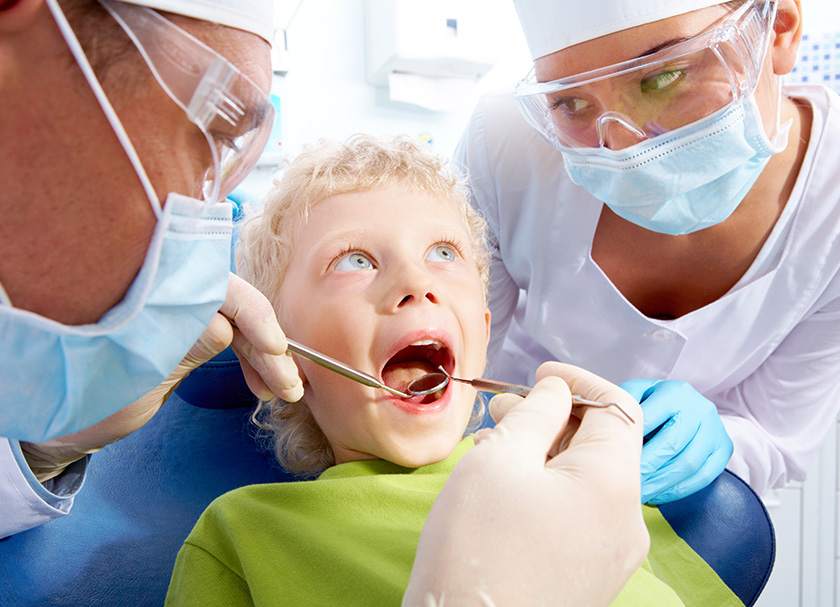Pediatric dentistry or Children’s dental clinic in Delhi is a dental specialty that focuses on delivering preventative and therapeutic oral health care to infants and children. To prevent future dental issues, children’s dental growth and development must be supervised throughout the “growth” period.
When permanent teeth will eventually replace milk teeth, parents frequently wonder why they should invest money in maintaining the former.
Milk Teeth Are Just As Vital As Permanent Teeth
- Because baby teeth are crucial for good nutrition and nourishment, they are just as necessary as permanent ones.
- For the appropriate alignment and spacing of the permanent teeth, milk teeth act as space maintainers.
- A baby’s ability to talk correctly depends on having healthy milk teeth.
- Early self-confidence development is aided by having attractive teeth. Due to their immaturity, young children are ready to make fun of their friend’s discolored or unsightly teeth.
Baby bottle Tooth Decay
The term “baby bottle tooth decay” (also known as “nursing bottle caries”) refers to a dental disorder where a child’s or infant’s baby teeth rapidly deteriorate, sometimes affecting all of them. Due to their early eruption and prolonged contact to the sugars in the feeding bottle, the upper front teeth are the ones that are most vulnerable to harm. As the infant sucks on the nipple of the bottle or the breast, the tongue usually serves to protect the child’s lower front teeth.
When a baby falls asleep with a bottle of milk, juice, or a pacifier dipped in honey, their teeth are exposed for a prolonged period of time to a liquid that contains sweets, which is known as baby bottle tooth decay. Liquid collects around the front teeth. Every baby’s mouth is home to bacteria, which converts milk sugar or other carbohydrates to acid while the child is sleeping. This acid then causes decay.
When the issue is discovered by the parents, it can already be too late and the rotting teeth will need to be removed. Your kid may experience long-term difficulties as a result, including speech impairments, potential mental distress, crowded or misaligned teeth, and poor dental health.
The condition is readily prevented by
- Every day, brush your child’s teeth.
- After consuming a bottle of juice, milk, or formula, providing plain water
- Begin bottle weaning at least one year before
- Ensure that your child receives the fluoride required to prevent tooth decay.
- When your child’s first tooth appears, start taking them to the dentist on a regular basis.
We hope you understand this and provide your child with the greatest tools to attain excellent oral health.
Treatments For Child Dental Care – Children’s Dental Clinic In Delhi
Root Canal Therapy for milk teeth
Root canal therapy for milk teeth may be essential if dental decay has advanced to the tooth’s nerve chamber. This procedure is similar to that for permanent teeth. Even though milk teeth have a unique shape that makes treatment challenging, it may still be viewed as a better option than a tooth extraction.
Space Maintainer
A portable or stationary appliance that maintains an existing space is known as a space maintainer. When a youngster loses their baby teeth early, space maintainers are typically fitted. For the permanent tooth to emerge in the proper location, the space created by this tooth’s loss needs to be kept open.
Fluoride application
Children have less skill when cleaning their teeth, making them more susceptible to tooth decay. By integrating fluoride ions into the structure and increasing their susceptibility to acid disintegration, fluoride varnishes applied on a regular basis enhance tooth structure. Fluoride therapy benefits milk teeth as well as permanent teeth.
For Young Children Under Three
- Because of its simplicity, patient acceptability, and shown anti-decay advantages, fluoride administration by a professional is especially advised. Every four months, reapplication should be undertaken for the most effects.
- Only fluoride toothpaste is advised for young children among the several home-use fluoride preparations (mouthwashes, gels, and toothpaste), however, care must be taken to prevent fluoride intake.
Kids Dental CheckUp
The main focus for children’s dental health is centered on prevention and education. Checkups are a good opportunity to simply and comfortably assess:
- How many teeth are there,
- Are they all present,
- Are any teeth loose, and how is the bite?
- Cavity exam
- gum health assessment, and habit evaluation
- home care
- Preventative diet review
- Fluoride usage
- Adult issues
- Advice Parents on how to look after children’s teeth
Tips For Kids Dentistry At Home
Brushing your child’s teeth might be challenging at first. Each child is unique, therefore they may truly put up a fight by kicking, screaming, weeping, running away, or refusing to open their lips.
It is crucial to have healthy teeth and gums while you are young. We’ve all heard how important it is to pick your battles with your kids, and this is one to pick.
Keep in mind that the first obstacle you confront will be harder on you than it will be on your child in the end.
How To Take Care Of Baby’s Teeth?
After feeding, wipe your baby’s cheeks and gums with a soft, clean towel even before the first tooth erupts. Use a tiny, soft-bristled toothbrush to clean the tooth after meals as soon as the first tooth erupts. Avoid smearing toothpaste on the brush. Young toddlers frequently swallow toothpaste, and ingesting too much fluoride toothpaste can result in dental fluorosis, which is a permanent stain on the teeth.
Brushing Prior To Sleep Is Important
The brushing before bed is perhaps the worst one to skip if you have to. The germs and sugar that create cavities have all night hurt you if you don’t get rid of them. Saliva assists in keeping the mouth clean when you are awake. Less saliva is generated to clean the mouth as you sleep. Brushing before bed is crucial for this reason.
How To Brush Your Child’s Teeth?
On the chewing, exterior, and inner surfaces of teeth as well as the gums, plaque develops every day. One of the most efficient ways to eliminate plaque is by cleaning your teeth.


